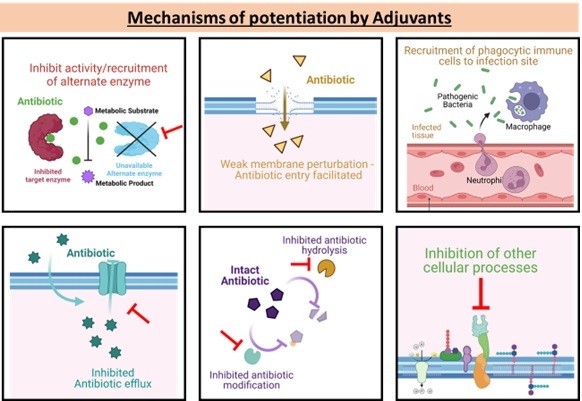
'Adjuvant molecules' can help fight antibiotic resistance: Study

Antibiotic resistance is a rising clinical and public health challenge worldwide. Multidrug-resistant strains are emerging to the last resort, antibiotics. Researchers from the Jawaharlal Nehru Centre for Advanced Scientific Research (JNCASR), Bengaluru have studied nonantibiotic compounds called antibiotic adjuvants, which target bacterial resistance and can be used in combination with obsolete drugs for an improved therapeutic regime.
“In the growing era of antibiotic resistance and stringent parameters for developing new drugs, it is imperative to look at the obsolete approved antibiotics, target resistance mechanisms to them, and revive their efficacy. Taking inspiration from the prescription of a combination of drugs, ‘antibiotic adjuvants’ targeting these resistance mechanisms offer a good alternative,” inform the researchers while talking to India Science Wire.
Also Read: Invisible glacier loss in greater Himalayas greatly underestimated: Study
Stringent cut-offs for effective drug design often stall the drug discovery process. Scientists are constantly looking into several mechanisms of resistance to existing antibiotics to improve antibiotic efficacy.
The researchers from JNCASR discussed various inherent and acquired mechanisms of resistance in bacteria in their review article. They also talk about how ‘antibiotic adjuvants’ can target this resistance, either directly or indirectly. These include various enzyme inhibitors, efflux pump inhibitors, membrane-targeting compounds, compounds targeting other cellular processes, and host-modulating compounds. These compounds, however inactive against bacteria on their own, can be combined with existing antibiotics to fight infection.

Based on their extensive literature survey, the team presented some insights on filling the gaps in developing different types of adjuvants. Currently, β-lactamase inhibitors are the only type of approved adjuvants. They have highlighted the importance of structure-activity relationship, in-vivo toxicology studies, pharmacokinetic, and pharmacodynamic studies to aid in developing of other types of adjuvants. They have also discussed the design of weak membrane-perturbing adjuvants that overcome permeability barrier and efflux mechanisms in Gram-negative bacteria to potentiate multiple classes of antibiotics.
Also Read: Customise your chats with WhatsApp’s new feature
“There is immense potential for commercialization of combination therapy. The research ecosystem has risen robustly and developed novel ways of rehabilitation for existing antibiotics. However, efforts need to be undertaken to take such compounds to the preclinical and clinical development stage,” said the researchers.
The team comprising Geetika Dhanda, Yash Acharya, and Jayanta Haldar has stressed the importance of targeting more complicated forms of infection like biofilms, intracellular infections and persister cells and on the need to investigate host-modulating properties of different adjuvants.


